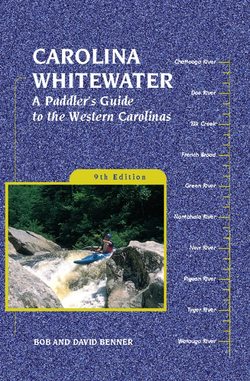Читать книгу Carolina Whitewater - David Benner - Страница 16
ОглавлениеLegal Rights of the Canoeist
In any discussion of canoeists’ legal rights the question of navigability arises. It is generally assumed that if a stream is navigable one has the legal right to float a canoe on it. Basically this is correct in the state of North Carolina.
However, the question remains as to what constitutes “navigability” under the laws of the state. One old case defined a stream that loggers used to float their timber down to be navigable, but it is believed that this case defined a limited type of navigable purpose. The general idea seems to be that if a waterway is suitable as a “highway” of commerce it is navigable and the public has a right to use it. When a navigable stream crosses an owner’s land the state owns the bottom and the owner cannot legally block use of the stream for navigation or fishing.
In a recent decision, when a landowner attempted to block a waterway, declaring it nonnavigable, the California Court of Appeals determined that the test of navigability is met if the stream is capable of supporting boating for pleasure. In making his decision the judge pointed out that the streams of California are a vital recreational resource of the state. Perhaps this case may set a precedent that will be followed in the future in determining the rights of the paddler. Although, with the strong laws protecting the property rights of the individual owner in North Carolina the recreation precedent may never float there.
When a person owns land over which a “non-navigable” stream flows, that person owns the land under the stream and has the right to control the surface of the water. For this reason, when canoeing on streams of questionable navigability, it is best to mind one’s manners to the fullest. If you must cross private property for any reason, request the owner’s permission before doing so. Generally speaking, the landowner will be a reasonable person if approached courteously and respectfully. More often than not the unreasonable property owner is one whose property rights have been abused in the past.
With the popularity of canoeing growing tremendously, travel on our streams is increasing also. Prime examples of such heavy usage can be found on the Nantahala and the Chattooga. Be sure that you aren’t the proverbial straw that breaks the camel’s back; by committing some careless act you may cause a landowner along a stream of questionable navigability to block access to it, or perhaps take the next guy to court for trespass. Make sure that you leave the door open for the next paddler.
